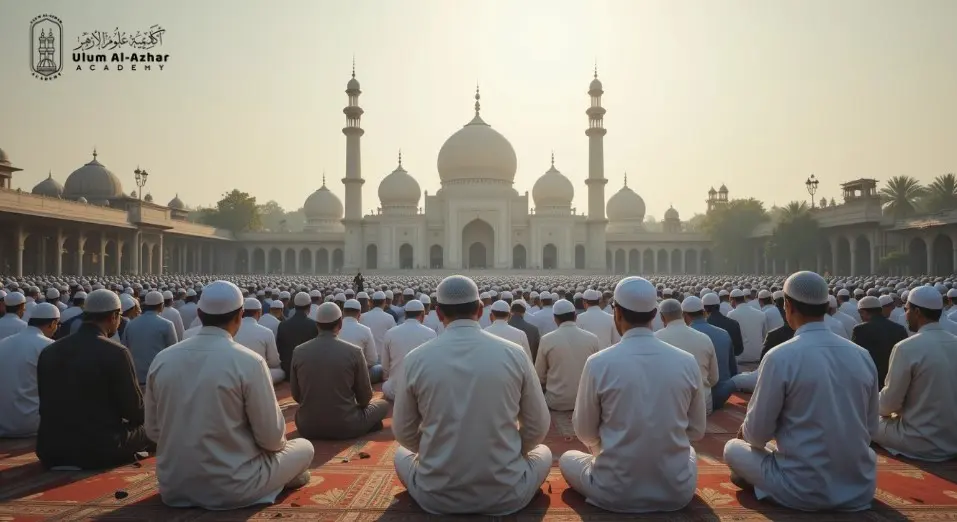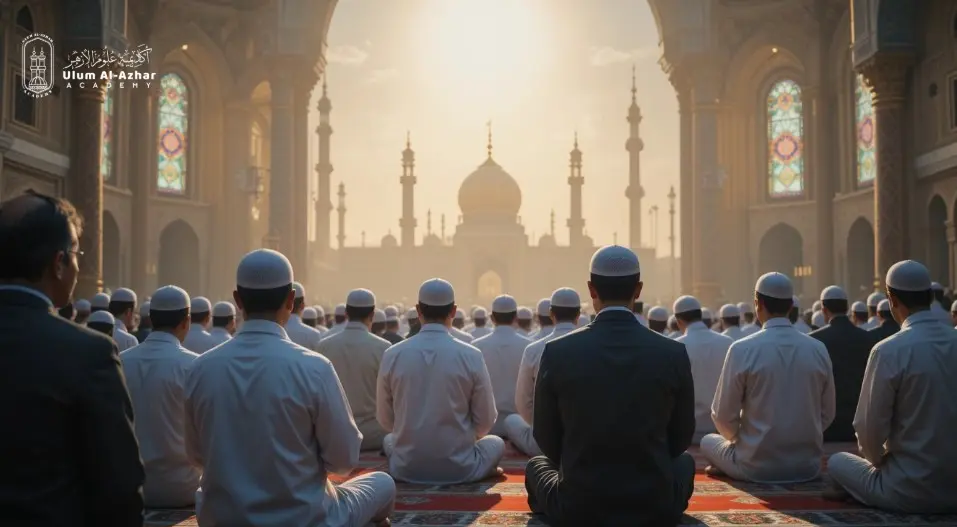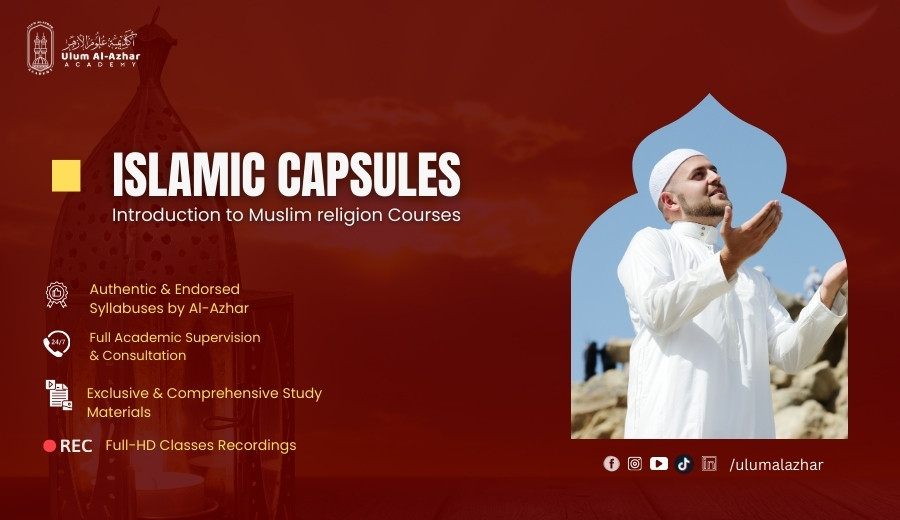
Takbir definition: What It Means and Why It’s Important in Islamic Celebrations
The takbir definition is the powerful Islamic declaration Allahu Akbar (الله أكبر), which means “Allah is the Greatest.”
In this article, we will explain the definition of Takbir, its importance in Islamic worship, and why it is an essential part of a Muslim’s faith and devotion.
What Is Takbir? Meaning and Importance in Islam
Takbir definition is the utterance “Allahu Akbar” (الله أكبر), meaning “Allah is the Greatest.” It is among the most common words of Islam, indicating the utmost and superiority of Allah.
The Takbir is also a vital aspect of Islamic rites, rituals, and daily life, which is a constant reminder to the faithful of the almighty power of God and its greatness.
The Takbir Definition and Its Role in Islamic Celebrations

The takbir definition is the phrase Allahu Akbar (الله أكبر), which translates to “Allah is the Greatest.”
This serious declaration is essential to Islamic worship and celebrations, as it brings Muslims together in proclaiming their faith and worship. For Eid celebrations, Hajj, or other significant occasions, Takbir is the emblem of thanksgiving, respect, and happiness in Islam.
Begin your Private Islamic learning journey with a free Consultation session by Sheikhs from Al-Azhar, Egypt!
Takbir in Eid Celebrations
One of the most visible moments when the takbir definition is brought to the forefront is during Eid al-Fitr and Eid al-Adha. Muslims read the Takbir loudly in mosques, at home, and in public, reaffirming the communal spirit of these festive celebrations.
- Eid al-Fitr: After a month of fasting in Ramadan, Muslims celebrate Eid al-Fitr by reciting the Takbirat al-Eid from night of Eid to the Eid prayer. This persistent thanking of Allah is an expression of gratitude for finishing the blessed month.
- Eid al-Adha: Takbir is also a component of Eid al-Adha from 9th Dhul-Hijjah (Day of Arafah) until the 13th of Dhul-Hijjah. These repeated declarations remind the Muslim of Prophet Ibrahim’s (AS) affection and regard for Allah and the spirit of sacrifice.
Takbir Difinition in Hajj and Other Religious Occasions
Takbir definition is also significant during Hajj, especially in the Talbiyah and stoning of the Jamarat, where pilgrims praise Allah’s greatness. Muslims can also recite Takbir during times of individual victory, thanksgiving, or in times of seeking power from Allah.
When Do Muslims Recite the Takbir and Why?
Muslims say the Takbir on many occasions, each with profound spiritual and religious meaning.
1. In the Five Daily Prayers (Salah)
One of the most common uses of the Takbir definition is in Salah (prayer). Muslims say Allahu Akbar at the beginning of every prayer and also in altering postures. The repeated recitation, so frequent, strengthens submission, humility, and obedience to Allah.
Discover the best Qadar night dua to recite and more!
2. In the Call to Prayer (Adhan and Iqamah)
The Takbir is also at the forefront of the Adhan (call to prayer) and Iqamah (call to commence prayer). The phrase Allahu Akbar is chanted to summon the worshippers to prayer and to emphasize the fact that nothing is greater than responding to Allah’s call.
3. During Eid Celebrations
The takbir definition is directly linked with the celebrations of Eid al-Fitr and Eid al-Adha. Muslims utter Takbirat al-Eid before and after the Eid prayer as a congregational celebration of joy, gratitude, and thanksgiving for the blessings of Allah.
4. During Hajj and Days of Tashreeq
During the sacred pilgrimage of Hajj, pilgrims utter the Takbir during ceremonies such as:
- The Talbiyah – A recitation of thanksgiving to Allah, where Allahu Akbar is repeatedly said.
- The Stoning of the Jamarat – Takbir is recited during stone-throwing against the idol of sinning and submitting to Allah.
- The Days of Tashreeq (11th-13th of Dhul-Hijjah) – Muslims all over the world continue to say the Takbir after prayers together in solidarity with each other’s acknowledgment of Allah’s dominance.
Discover how many Taraweeh prayer Rakat are there and more!
5. In Times of Difficulty or Triumph
Takbir definition also extends during moments of personal struggle and victory. During adversity, Muslims utter Allahu Akbar while seeking assistance from Allah. Even in moments of success or wonder, Takbir is uttered while giving thanks and acknowledgment of Allah’s favors.
Takbir in Eid vs. Daily Prayers: What’s the Difference?

Here are the key differences between Takbir in Eid and daily prayers:
| Aspect | Takbir in Daily Prayers | Takbir in Eid Prayers |
| Purpose | Marks transitions in prayer | Expresses joy and glorifies Allah |
| Recitation Style | Silent (except in congregational Salah) | Loud and collective |
| Frequency | Recited once per movement | Recited multiple times in prayer |
| Public Proclamation | Not required outside Salah | Encouraged before and after Eid prayer |
The Virtues and Rewards of Reciting the Takbir
Takbir definition is the expression Allahu Akbar (الله أكبر), meaning “Allah is the Greatest.” It is a brief but firm saying that is blessed with a great deal of goodness and virtue in Islam. Declaring Takbir is not merely an act of worship but rather a way of strengthening belief, increasing reward, and becoming more devoted to Allah.
1. Takbir Definition and its role is Strengthening Faith and Consciousness of Allah
Among the primary benefits of reciting Takbir is that it reinforces Tawheed (singularity of Allah) and reminds the believers of His supreme authority. By repeating the recitation of Allahu Akbar, Muslims feel a great sense of reliance on Allah in every walk of life.
2. Gaining Rewards and Forgiveness
Takbir definition is also used in its role as Dhikr (rememberance of Allah). The Prophet Muhammad (ﷺ) practiced reading Takbir and other words of glorification:
“The most favorite words before Allah are four: SubhanAllah (Glory be to Allah), Alhamdulillah (All praise is due to Allah), La ilaha illa Allah (There is no god but Allah), and Allahu Akbar (Allah is the Greatest).” (Sahih Muslim)
The traditional repetition of Takbir strengthens the good deeds of a believer and is a type of seeking forgiveness from Allah.
3. A Symbol of Gratitude in Islamic Celebrations
Muslims come together to recite Takbir during Eid al-Fitr and Eid al-Adha as a symbol of joy and gratitude. The takbir definition does not only define the phrase, but it is also a way of showing gratitude for the blessings of Allah and celebrating His mercy.
4. A Source of Strength and Safety
Saying Allahu Akbar in times of difficulty brings peace and strength. Takbir has been said throughout the history of Islam to muster courage during times of war or even adversity. It reminds us that no issue can be greater than the strength of Allah.
5. Ranks being Raised in the Hereafter
The Prophet Muhammad (ﷺ) emphasized the enormous reward of remembering Allah by reciting words like Takbir. Reciting Allahu Akbar repeatedly lifts the rank of a believer in the Afterlife and results in a calm and believing heart.
The Significance of the Takbir During Eid Celebrations
Reciting the Takbir during Eid al-Fitr and Eid al-Adha manifests gratitude, unity, and submission to Allah.
1. Takbir Definition and Expressing Gratitude for Allah’s Favors
Eid is an occasion of celebration and thanksgiving, and the recitation of Takbir is an act of gratitude for Allah’s numerous favors.
Muslims express thanks to Allah during Eid al-Fitr for providing them with the strength to complete the month of fasting in Ramadan. Likewise, during Eid al-Adha, the Takbir is recited to celebrate the sacrifice of Prophet Ibrahim (AS) and to appreciate the mercy of Allah.
2. Fortifying the Spirit of Oneness
The Takbir definition extends past individual worship—it unites Muslims worldwide in a common proclamation of Allah’s superiority.
Whether in mosques, at home, or on the streets, the Takbir reinforces Eid’s communal spirit. The people’s chanting of Allahu Akbar together creates a sense of brotherhood and common faith.
3. Preparing the Heart for Eid Prayer
Before performing the Eid prayer, Muslims perform the Takbirat al-Eid, calling out the following phrase over and over:
“Allahu Akbar, Allahu Akbar, La ilaha illa Allah, Allahu Akbar, Allahu Akbar, wa Lillah il-hamd.”
(Allah is the Greatest, Allah is the Greatest, there is no god but Allah, Allah is the Greatest, Allah is the Greatest, and to Allah belongs all praise.)
This constant recitation helps spiritually prepare for the Eid prayer and reminds believers of Allah’s magnificence and how important the event is.
Explore the sacred and blessed times in Islam with Ulum Al-Azha!
Join our Sacred Months in Islam & Blessed Times course to discover the significance of holy months, special seasons, and the ways to maximize barakah in your life. Don’t miss this opportunity to deepen your connection with Allah and remember the Days of Allah! Enroll now and make the most of these divine moments!

Conclusion
The Takbir definition highlights its deep significance during Eid celebrations. It is not just a phrase but a heartfelt declaration of faith, gratitude, and unity.
Whether recited before the Eid prayer, during the days of Tashreeq, or throughout the festive period, the Takbir serves as a reminder of Allah’s infinite greatness and the joy of worshiping Him.
Book a free Consultation session and start learning!
FAQs
When to say Takbeer?
Takbeer is recited during daily prayers, before and after Eid prayers, during the Days of Tashreeq (11th–13th of Dhul-Hijjah), and in moments of gratitude, difficulty, or seeking strength.
What do you say in Takbir?
In Takbir, we say “Allahu Akbar” (الله أكبر), meaning “Allah is the Greatest.”
